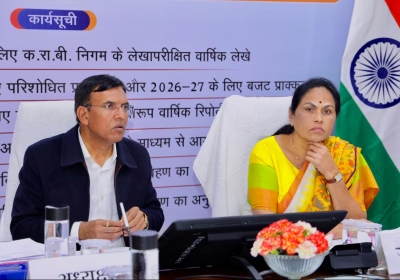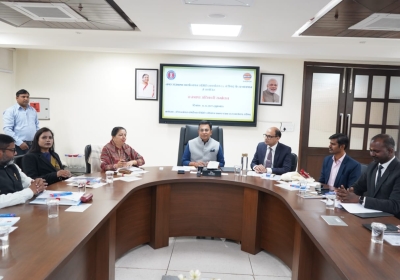
In June 2020, Sanaullah Ghafari became the head of ISIS-K
USA is offering a $10 mn reward for info about ISIS-K leader
The US offered a $10 million prize on Monday for information leading to the “identity or location” of the leader of the ISIS group’s Afghanistan regional chapter.
The US State Department also offered a reward for any information leading to the arrest or conviction of individuals responsible for the August 26 “terrorist incident at the Kabul airport,” which was claimed by ISIS-Khorasan (IS-K).
The attack, which took the lives of over 100 individuals, including 13 American soldiers, happened as the US attempted to coordinate its haphazard retreat from Afghanistan and the evacuation of Afghans considered vulnerable to the Taliban’s control.
Sanaullah Ghafari, commonly known as Shahab al-Muhajir, was named head of ISIS-K by the ISIS group in June 2020, according to Washington.
ISIS-K is the Afghan branch of the ISIS terrorist group, which began in Iraq and Syria.
The State Department claimed in a statement that “Ghafari is responsible for approving all ISIS-K operations throughout Afghanistan and obtaining funding to conduct operations.”
In November, Sanaullah Ghafari was classified as a foreign terrorist.
“An ISIS communiqué announcing his appointment described al-Muhajir as an experienced military leader and one of ISIS-K’s ‘urban lions’ in Kabul who has been involved in guerrilla operations and the planning of suicide and complex attacks. Reward up to $10 million! Sanaullah Ghafari is the current leader of the ISIS-K terrorist organisation. Report information to RFJ via Signal, Telegram, WhatsApp, or our Tor-based tips line — help bring this terrorist to justice,” U.S Department of Rewards for Justice.
Who’s Sanaullah Ghafari?
The Islamic State – Khorasan Province (ISKP) is a South Asian and Central Asian affiliate of the Islamic State (IS). Some media outlets refer to the group as ISK (or IS–K), ISISK (or ISIS–K), IS–KP, Daesh–Khorasan, or Daesh-K. ISKP has been active in Afghanistan, with claims of assaults in Pakistan, Tajikistan, and India, as well as pledges of loyalty in Sri Lanka, the Maldives, Bangladesh, and China. Both the ISKP and the Taliban see each other as foes.
When the IS-K was founded in Afghanistan, its leader was Hafiz Saeed Khan, and his deputy was Abdul Rauf Aliza, a former Taliban member. The US engaged terrorist attacks in 2015, killing Aliza and Hafiz Saeed Khan in 2016. Al-Muhajir was appointed as IS-leader K’s and chief of operations in 2020, establishing himself as the organization’s mastermind and main figure. He is also the first non-Afghan or non-Pakistani to lead the IS-K group, according to reports.
Shahab al-Muhajir was a member of Al-Qaeda and a mid-level Haqqani network commander (an Islamist militant group affiliated with the Taliban) before defecting and becoming the leader of the ISIS-K, which is fiercely opposed to the Taliban. Following al-masterminding Muhajir’s of the 2021 Kabul airport attack, the Taliban vowed that they would use all means at their disposal to apprehend him.
For years, the Taliban cast a pall over ISIS-K. According to a United Nations monitoring report released this week, it has prospered in recent months following the collapse of the Western-backed administration.
Following the liberation of many thousand captives, estimates of ISIS-K strength had climbed from 2200 to closer to 4000, according to the report. The study stated, “There are no recent evidence that the Taliban has taken steps to curb the activity of foreign terrorist combatants in the nation.” ‘On the contrary, terrorist organizations have more freedom there than at any moment in recent history,’ says the report.
The ISIL (Da’esh) and Al-Qaida Sanctions Committees of the United Nations Security Council added al-Muhajir (using one of his aliases, “Sanaullah Ghafari”) to their sanctions list on December 21, 2021.
The European Union Council, following the UN, added al-Muhajir (using one of his aliases, “Sanaullah Ghafari”) to its sanctions list on December 22, 2021.





